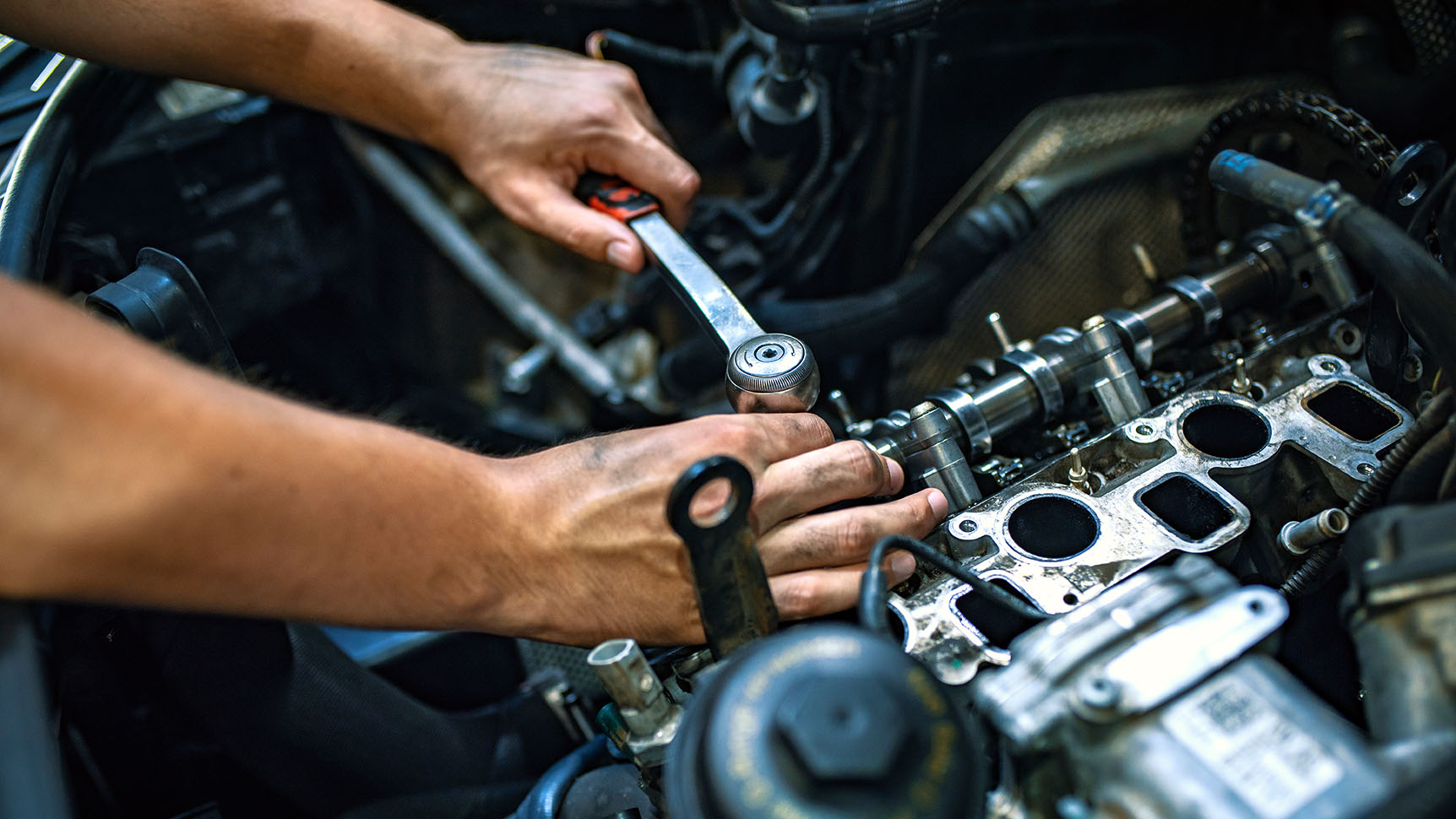
When it comes to keeping our vehicles running smoothly, automotive mechanics play a crucial role. These skilled professionals possess the knowledge and expertise to diagnose, repair, and maintain the complex systems that make our cars and trucks operate efficiently. However, there is much more to the world of automotive mechanics than meets the eye. In this article, we will delve into 14 fascinating facts about automotive mechanics that you may not be aware of. From the history of this profession to the advanced technologies they work with today, these insights will give you a newfound appreciation for the work that automotive mechanics do. So, buckle up and get ready to explore the intriguing world of automotive mechanics!
Key Takeaways:
- Automotive mechanics are highly skilled professionals who undergo extensive training to work on a wide range of vehicles, from sedans to motorcycles, ensuring your car is in capable hands.
- Continuous learning is crucial for automotive mechanics to keep up with evolving technology, providing expert services and contributing to a greener future by maintaining electric and hybrid vehicles.
The demand for automotive mechanics continues to grow
As technology advances and more vehicles are on the road, the demand for skilled automotive mechanics is steadily increasing. With the constant need for repairs, maintenance, and diagnostic services, there is no shortage of job opportunities in this field.
Automotive mechanics are highly trained professionals
Automotive mechanics undergo extensive training to acquire the necessary skills and knowledge to work on a wide range of vehicles. They are well-versed in engine systems, electrical systems, diagnostics, and repairs. Their expertise ensures that your car is in capable hands.
Diagnostic tools play a crucial role in automotive repair
With the advancement of technology, automotive mechanics rely on diagnostic tools to identify and troubleshoot issues in vehicles. These tools help them pinpoint problems quickly and accurately, saving time and ensuring efficient repairs.
An automotive mechanic’s job goes beyond repairs
Automotive mechanics not only repair vehicles but also perform preventative maintenance tasks such as oil changes, brake inspections, and tire rotations. These routine services help prevent major issues and keep vehicles running smoothly.
Continuous learning is essential in the automotive mechanic field
Automotive technology is always evolving, and as a result, mechanics need to stay updated with the latest advancements. Continuous learning through training programs and workshops is crucial to ensure they can effectively work on modern vehicles.
Automotive mechanics encounter various types of vehicles
From sedans and SUVs to trucks and motorcycles, automotive mechanics work on a diverse range of vehicles. Their expertise extends to different makes and models, allowing them to handle a wide variety of repair and maintenance tasks.
Specialization is common among automotive mechanics
Some automotive mechanics choose to specialize in specific areas such as engine repair, electrical systems, or transmission systems. This specialization further enhances their skills and allows them to provide expert services in their chosen field.
Strong problem-solving skills are essential for automotive mechanics
Identifying and solving complex issues in vehicles requires strong problem-solving skills. Automotive mechanics must analyze symptoms, troubleshoot potential problems, and devise effective repair strategies to get vehicles back on the road.
Automotive mechanics value customer satisfaction
Providing excellent customer service is an integral part of an automotive mechanic’s job. Mechanics strive to communicate effectively with customers, explain repairs, and ensure their satisfaction with the services provided.
Safety measures are a top priority for automotive mechanics
Automotive mechanics prioritize safety both for themselves and for their clients. They follow proper safety procedures, use protective equipment, and maintain a safe working environment to reduce the risk of accidents or injuries.
Automotive mechanics contribute to a greener future
With the rise of electric and hybrid vehicles, automotive mechanics play a crucial role in maintaining and repairing these eco-friendly cars. Their expertise ensures that these vehicles continue to run efficiently, contributing to a greener future.
Good communication skills are important for automotive mechanics
Effective communication is key in the automotive mechanic field. Mechanics must be able to understand client concerns, explain repairs in a clear manner, and convey technical information in a way that is easily understandable for their customers.
Warranty work is often performed by automotive mechanics
Automotive mechanics often handle warranty repairs for vehicles still covered under manufacturer warranties. This requires them to follow specific guidelines and procedures to ensure the warranty remains valid and the repairs are carried out correctly.
Automotive mechanics can specialize in restoration work
Some automotive mechanics specialize in restoring classic and vintage cars. They possess the skills and knowledge to bring these cars back to their former glory, utilizing their expertise in automotive systems and historical accuracy.
Conclusion
Automotive mechanics play a vital role in keeping our vehicles running smoothly. They possess a wealth of knowledge and skills that allow them to diagnose and fix a wide range of car issues. From engine repairs to electrical systems, they are the experts we rely on to keep our vehicles in top shape.
With their depth of knowledge and expertise, automotive mechanics consistently deliver high-quality work that ensures our safety on the roads. Whether it’s routine maintenance or major repairs, their dedication and commitment deserve recognition.
Next time you visit your local mechanic, remember the fascinating facts about their profession and appreciate the crucial role they play in the automotive industry.
FAQs
1. How long does it typically take to become an automotive mechanic?
It can take anywhere from six months to two years to complete a vocational training program or obtain an associate’s degree. However, gaining experience and staying up-to-date with the latest advancements in automotive technology is a never-ending process.
2. What certifications do automotive mechanics need?
While certification requirements may vary, many mechanics opt to become certified by the National Institute for Automotive Service Excellence (ASE). This certification ensures that they have met specific industry standards and have the knowledge and skills needed to perform their duties effectively.
3. Are there specialized areas within automotive mechanics?
Yes, there are various specializations within the field of automotive mechanics. Some common areas of specialization include brake systems, electrical systems, engine repair, and transmission repair.
4. How often should I take my car for regular maintenance?
It is generally recommended to follow the manufacturer’s guidelines for regular maintenance, which typically includes oil changes, tire rotations, and regular inspections. However, factors such as driving habits and the age of your vehicle may influence the frequency of maintenance visits.
5. Can I save money by performing my own car repairs?
While performing minor repairs and maintenance tasks can save you money, it is important to recognize your own limitations. Attempting complex repairs without the necessary knowledge and experience can lead to further damage and costly repairs in the long run. It is advisable to leave major repairs to trained professionals.
Exploring the world of automotive mechanics is just the beginning of your journey into vehicle maintenance and repair. Whether you're a seasoned car owner or a curious enthusiast, understanding the intricacies of car repair can save you time, money, and headaches down the road. Equipping yourself with the best tire repair kit is a smart move that can help you tackle unexpected flats and keep your vehicle running smoothly. So, buckle up and get ready to dive deeper into the fascinating realm of automotive care!
Was this page helpful?
Our commitment to delivering trustworthy and engaging content is at the heart of what we do. Each fact on our site is contributed by real users like you, bringing a wealth of diverse insights and information. To ensure the highest standards of accuracy and reliability, our dedicated editors meticulously review each submission. This process guarantees that the facts we share are not only fascinating but also credible. Trust in our commitment to quality and authenticity as you explore and learn with us.


